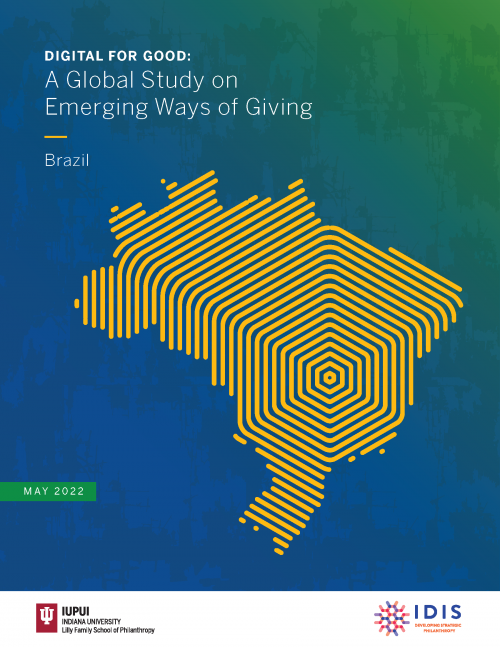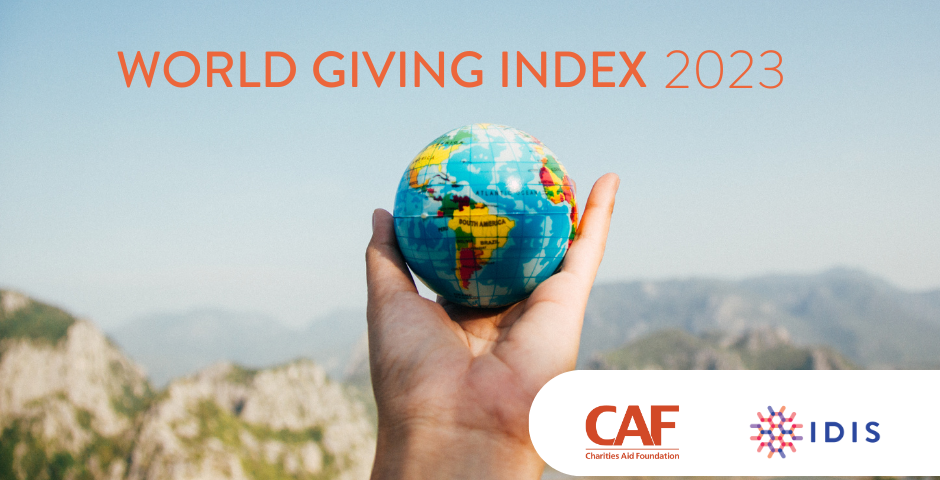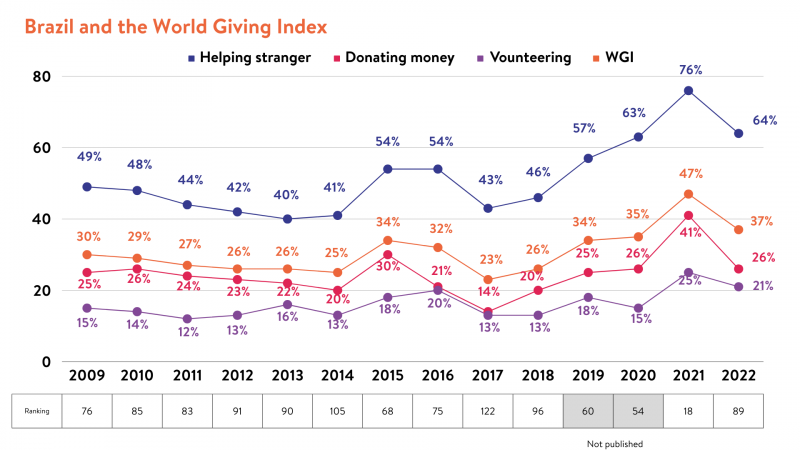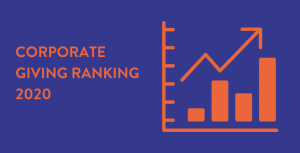Analyses of philanthropic activity in Brazil and the United Kingdom identify expanded donor expectations for transparency from charitable organizations and significant growth in digital giving
 INDIANAPOLIS – Today the Indiana University Lilly Family School of Philanthropy at IUPUI launched its new research series, Digital for Good: A Global Study on Emerging Ways of Giving. The series will chronicle findings and insights regarding emerging trends in charitable giving, with a focus on how innovative giving methods such as mobile giving, crowdfunding, online volunteering, social impact initiatives and others are shaping giving in various countries.
INDIANAPOLIS – Today the Indiana University Lilly Family School of Philanthropy at IUPUI launched its new research series, Digital for Good: A Global Study on Emerging Ways of Giving. The series will chronicle findings and insights regarding emerging trends in charitable giving, with a focus on how innovative giving methods such as mobile giving, crowdfunding, online volunteering, social impact initiatives and others are shaping giving in various countries.
Click here to download the material.
The series, which builds on the school’s Global Philanthropy Environment Index and Global Philanthropy Tracker, will be released in phases over the next five months and feature profiles of eight diverse countries, beginning today with analyses of giving trends in the United Kingdom and case studies of non-traditional ways of giving in Brazil. Profiles of China, India, Kenya, Singapore, South Africa and South Korea will follow. For each country, the research team collaborated with in-country partner organizations or individual experts to identify specific trends, shape data collection, and develop report findings. The study series is based on research funded by the Bill & Melinda Gates Foundation.
“Expanding on our global philanthropy research by introducing these studies allows us to better understand philanthropy’s ever-evolving trends and to examine them in countries with varied philanthropic landscapes,” said Una Osili, Ph.D., Associate Dean for Research and International Programs at the school. “By identifying and understanding emerging ways in which people are giving, we can equip leaders of charitable organizations to better secure, shape and deliver much-needed aid and relief.”
The first two country profiles examine philanthropic engagement in Brazil and the United Kingdom prior to and throughout the COVID-19 pandemic. Both countries report an expansion of various types of channels for donations, while researchers noted the necessity of new, technology-based ways of giving for philanthropy’s continued growth in each geographic area.
Both country profiles focus on emerging and expanding ways of giving: online giving and crowdfunding in the United Kingdom, and charity rounding up, crowdfunding, and social impact publishing in Brazil. Social impact publishing involves the production of inspiring, revenue-producing editorial content in which a portion of the revenue generated is given to nonprofit organizations.
Key findings in the Brazil profile feature analysis of three relevant case studies and include:
These include donating through rounding-up for a charity at checkout, crowdfunding, and social impact publishing, practices which all encourage smaller, more frequent donations that accommodate charitable contributions on modest household budgets. From 2013 to 2020, donations collected through rounding-up for charity via Arredondar increased exponentially from just BRL 1,091 in 2013 (equivalent to USD 590 in 2021, adjusted for inflation) to more than BRL 1.6 million in 2020 (equivalent to USD 330,186 in 2021, adjusted for inflation). The social impact publishing house Editora MOL also experienced growth on the donations made through its editorial products: nearly one-sixth of all donations it received since 2008 were made during 2021. And in 2020 alone, the use of the giving platform BSocial skyrocketed from 600 registered donors to about 15,000, resulting in a four-fold increase in charitable contributions.
“The three initiatives shared in this report highlight innovative ways that people are engaging in philanthropy in Brazil over recent years. Interestingly, these models are not digitally based; they evolved with no digital component, but digital will now contribute to their growth and expansion, and we hope they will inspire more ideas to promote philanthropy,” said Luisa Lima, Communications Manager at IDIS, the Institute for the Development of Social Investment, the Brazilian organization that conducted this research.
The most successful initiatives prioritize transparency and accountability in giving. In Brazil, as in many countries, charitable organizations face distrust or skepticism from donors about the use and impact of their donation. New giving initiatives that emphasize transparency and accountability can create more comfort for all donors with the nonprofit sector overall and can invite everyday donors to actively participate in a more inclusive civil sector.
“Transparency and accountability are crucial to the development of philanthropy in Brazil,” Lima added. “Although Brazilians are empathetic and supportive, there is an underlying attitude of distrust toward institutions that receive donations. Transparency is central to shifting these attitudes and building renewed trust within the philanthropic environment.”
Key findings in the United Kingdom profile feature results of an online survey of nearly 3,000 individuals and include:
Online giving has increased, especially during the COVID-19 pandemic. The proportion of donors giving via cash declined significantly during the United Kingdom’s first lockdown in March and April of 2020 and remained at levels much lower than usual even after many restrictions were lifted. Simultaneously, online giving showed a significant increase during the pandemic. On average, donors interviewed between May and July 2021 reported that 60% of their gifts in the past 12 months had been made online. Donations through a third-party app proved to be the most common way to donate online, with over half of respondents who donated online in the past 12 months noting that they had made gifts through applications like JustGiving or Virgin Money Giving.
A quarter of people gave via crowdfunding in the past 12 months. The most common reason to support a fundraising request via crowdfunding was to contribute to charity (30%). Findings suggest that 23% of people gave to crowdfunding ventures established for or by a friend or family member or those set up by a friend of a friend or an acquaintance, while less than 17% contributed to a crowdfunding effort established by someone they did not know. Notably, while a substantial portion (33%) of donors who gave via crowdfunding or social media sites said that they responded to requests posted by a friend, family member, or acquaintance, very few donors (4%) indicated being motivated to give by a social media “influencer.”
Online and offline solicitations often reinforce each other, making hybrid ways of giving the new normal in charitable giving. Researchers found that 63% of people who used social media to request donations also made requests in person.
“For the UK, the future for fundraising looks digital, but with a strong human element,” said Alison Taylor, Chief Executive Officer of Charity Services at the Charities Aid Foundation (CAF), which conducted the United Kingdom research. “Though donations may be conducted online, requests for support are often made by a friend or family member in person or via social media.”
This phenomenon highlights the continued importance of interpersonal connection when engaging would-be donors.
“The results of the first two country profiles suggest an evolution in giving practices and highlight a significant expansion of digital giving practices and peer-to-peer giving,” said Amir Pasic, Ph.D., the Eugene R. Tempel Dean of the Indiana University Lilly Family School of Philanthropy. “While these findings are the first in a series, the documented growth in digital giving and shifting donor expectations in the UK and in Brazil reinforce existing evidence that digital practices can help democratize the practice of philanthropy. Digital innovation makes philanthropy accessible and fosters greater transparency and accountability for how gifts lead to impact.”
About the Lilly Family School of Philanthropy
The Indiana University Lilly Family School of Philanthropy at IUPUI is dedicated to improving philanthropy to improve the world by training and empowering students and professionals to be innovators and leaders who create positive and lasting change. The school offers a comprehensive approach to philanthropy through its undergraduate, graduate, certificate and professional development programs, its research and international programs and through The Fund Raising School, Lake Institute on Faith & Giving, the Mays Family Institute on Diverse Philanthropy and the Women’s Philanthropy Institute. Follow us on Twitter, LinkedIn, or Instagram and “Like” us on Facebook.
About Charities Aid Foundation (CAF)
Charities Aid Foundation (CAF) is a leading charity and bank seeking to connect vital organizations, institutions and individuals working to ensure everyone has a stake in the future. We exist to accelerate progress in society towards a fair and sustainable future for all. For over 95 years, we’ve acted as a meeting point for companies, private philanthropists, fellow foundations, governments, charities, and not-for-profit enterprises. Our independence, expertise and international reach enable hundreds of millions of pounds each year to move across sectors and borders and arrive safely with thousands of charities to make a greater impact. We also lead an international network of like-minded charitable organizations. We collaborate to inspire innovation, share best practices, and improve cross-border giving in support of civil society.
About IDIS – Institute for the Development of Social Investment
IDIS – Institute for Development of Social Investment is a civil society organization founded in 1999 and pioneer in technical support to social investors in Brazil. With the mission to inspire, support and promote strategic philanthropy and its impact, IDIS serves individuals, families, companies, corporate and family run institutes and foundations, as well as with civil society organizations, in actions that transform realities and contribute for the reduction of social inequality in the country. Our actions are based on the tripod of generating knowledge, offering advisory and developing social impact projects that contribute to the strengthening of the ecosystem of strategic philanthropy and of giving culture. We value partnerships and co-creating, and believe in the power of connection, of joint learning, of diversity and plurality of points of view.



 INDIANAPOLIS – Today the Indiana University Lilly Family School of Philanthropy at IUPUI launched its new research series, Digital for Good: A Global Study on Emerging Ways of Giving. The series will chronicle findings and insights regarding emerging trends in charitable giving, with a focus on how innovative giving methods such as mobile giving, crowdfunding, online volunteering, social impact initiatives and others are shaping giving in various countries.
INDIANAPOLIS – Today the Indiana University Lilly Family School of Philanthropy at IUPUI launched its new research series, Digital for Good: A Global Study on Emerging Ways of Giving. The series will chronicle findings and insights regarding emerging trends in charitable giving, with a focus on how innovative giving methods such as mobile giving, crowdfunding, online volunteering, social impact initiatives and others are shaping giving in various countries.

